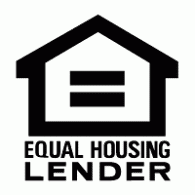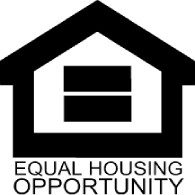- 15051 North Kierland Boulevard 3rd Floor, Scottsdale, AZ 85254
- Mon - Fri: 8:30am - 6:00pm

No income documentation loans or DSCR loans in Arizona are perfect for individuals with irregular income in many areas of business or entrepreneurship. Financing a home can be a complex process that comes with a small mountain of paperwork. Self-employed individuals can find it even more challenging to get a mortgage loan. The best way to get a mortgage loan or refinance property as a self-employed individual is through DSCR loans that do not require income documentation.
What are No Income Doc Mortgages In Arizona?
From businesspeople to freelancers to real estate investors, no income documentation mortgages can be very useful when buying a new home. No income doc mortgage loans can even prove helpful when trying to refinance residential or commercial real estate as an investor.
Essentially, a DSCR loan or no documentation home loan is a mortgage that doesn’t require the borrower to provide the lender with standard income documentation. This means that instead of getting pay stubs, W-2 forms, or tax returns, the lender will often accept bank statements alone as proof of income for no income verification loans.
Lending money is always a risk. But, in DSCR loan programs and no income doc mortgages in Arizona, the lending becomes even riskier as there is no proof of consistent income. For lenders to mitigate this risk when dealing with no income verification mortgages, they expect employed borrowers to meet specific criteria. The standard no income doc loan or DSCR loan requirements are:
Overall, no-income doc mortgages are great home loan alternatives for entrepreneurs, small business owners, freelancers, and real estate investors. Self-employed individuals who want a home loan through a no income doc mortgage should understand DSCR loan requirements and how it affects their chances of being approved.
Debt-service coverage ratio or DSCR is what metric lenders use to determine a property’s income compared to its debt obligations. DSCR calculations play a large role in whether the lender issues a no income doc mortgage. Instead of approaching a lender for a no documentation income loan and hoping for the best, you can calculate your DSCR to get a better idea of where you stand with potential lenders.
As a self-employed individual looking to obtain a no-doc mortgage loan, you need to learn the DSCR formula and how to calculate it for yourself. Essentially, DSCR is a calculation used to measure your cash flow against your current debt obligations. Use the following for the DSCR formula.
DSCR = Net Operating Income ÷ Total Debt Service
This calculation gives lenders a better understanding of your ability to pay back your home loan promptly. Keep in mind that DSCR calculations are also extremely important to lenders when working with real estate inventors. These calculations often make or break your chance of being approved for your no doc mortgage loan.
A debt service coverage ratio is always expressed as a ratio that is less than, equal to, or above one. The goal is to have a DSCR above 1.25. Typically, anything above 1.25 is considered good, and anything above 1.50 is considered great. If your DSCR is below 1.00, it may indicate to a potential lender that you or your company are facing financial difficulties.
If your DSCR is 1.00 or less, there is a good chance that potential lenders will not find you an acceptable candidate for a no-doc mortgage loan. While you can still apply for a DSCR mortgage loan if your ratio is less than 1.00, you should be prepared and go in with reasonable expectations.
While the DSCR mortgage loan program in Arizona works well for many self-employed individuals, it is especially effective to real estate investors. Real estate investors are all too familiar with the high interest rates and lengthy approval processes that come with traditional mortgage loans. In the fast-paced world of real estate, going with the traditional loan route often means missing out on important investment opportunities.
Being approved for a DSCR loan means more opportunities as an investor. Lenders will look at the cash flow of the property rather than your income on your tax return, allowing you to buy real estate property faster and more efficiently, and lease to tenants.
Real estate investors seeking a DSCR loan for investment properties should know that lenders generally take three key elements into consideration.
If you’re a self-employed individual in Arizona looking to buy or refinance any commercial or residential property soon, using the DSCR mortgage loan program may be in your best interest. Consult with our qualified team of mortgage lenders today to discuss your options with a DSCR loan. We look forward to working with you and helping you get the property you desire!
We’ve been helping customers afford the home of their dreams for many years and we love what we do.
Company NMLS: 150459
www.namb.org


© Copyright 2024 Blake Mortgage. All rights reserved.